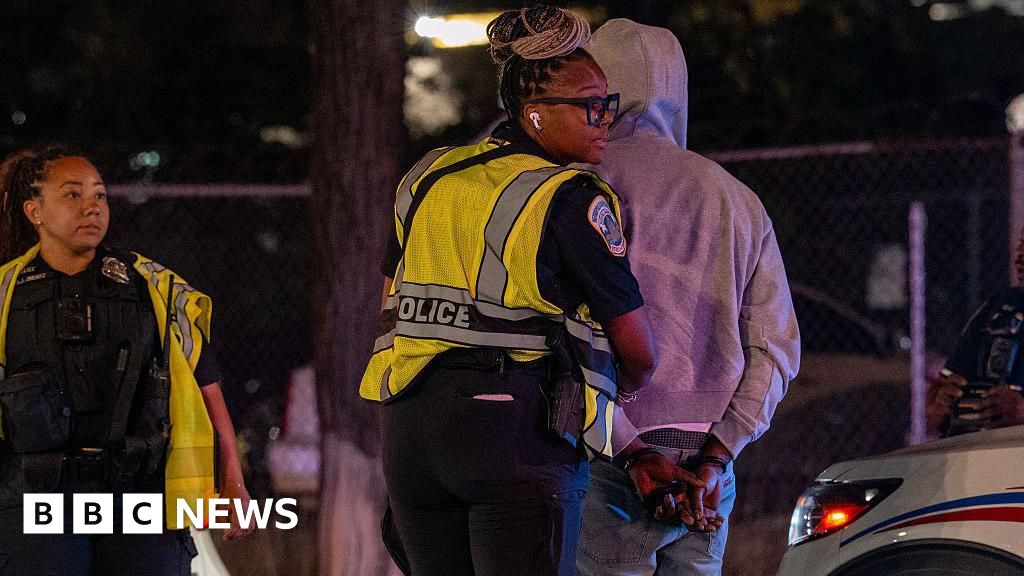President Donald Trump’s direct control of Washington DC’s police force is set to end on Wednesday, 30 days after he declared a “public safety emergency” in the US capital.
Trump took charge of the city’s Metropolitan Police Department (MPD) on 11 August, activating the National Guard and deploying federal officers in what he described as a crackdown on crime.
Although the president’s takeover is expiring, hundreds of federal police officers and National Guard troops are expected to remain in the city, and it is unclear how much will immediately change.
On Tuesday, the president dined at a restaurant in central Washington, telling reporters the city was now “virtually crime free”.
“We’re standing right in the middle of DC, which, as you know, over the last year was a very unsafe place – over the last 20 years,” Trump told reporters. “And now it’s got virtually no crime.”
Under the District of Columbia Home Rule Act – first instituted by President Richard Nixon in 1973 – the US president can only keep direct control of city police for 30 days, barring Congressional approval.
Republican House Speaker Mike Johnson told reporters on Capitol Hill earlier this week that Congress had no plans to vote on any extension of the takeover, largely due to cooperation from the city’s mayor Muriel Bowser.
“I’m not sure Congress has any necessity to do anything,” he said. “We’ll see how that plays out.”
Trump had previously floated the idea of prolonging the takeover, but has since praised Mayor Bowser for her role during the “emergency”.
On Truth Social last week, Trump wrote that the Mayor had become “very popular because she worked with me and my great people in bringing crime down to virtually nothing”.
Statistics released by the justice department on Wednesday said 2,310 arrests had been made since the start of the operation, with 225 illegal firearms seized.
Separate data published by the MPD earlier this week, showed that overall crime fell 15% when compared to the same time period in 2024, with violent crime falling 39%.
Crime in the city had already been falling before the takeover, and Washington DC police statistics show that violent offences fell after peaking in 2023 and in 2024 hit their lowest level in 30 years.
The statistics had led some local officials – including Mayor Bowser – to question whether intervention was necessary.
Trump’s takover of the city police and the deployment of federal forces has drawn criticism from some residents and officials.
Last week, the city’s attorney general sued the Trump administration over its deployment of the National Guard to the capital, calling the move unconstitutional.
Lawmakers are now also considering legislation that would drastically reform Washington’s criminal justice system.
On Wednesday morning, members of the House Oversight Committee were scheduled to bring up more than a dozen pieces of legislation related to crime fighting in DC, including proposals to lower the age at which juveniles can be prosecuted and to replace Washington’s elected attorney general with a presidential appointee.
The bills would still require approval from both chambers of Congress before they can be signed into law.
Trump has said that he would “probably” announce a new law and order push in another city and was “working it out” with a state governor and local mayor, without providing any further details.
He has previously suggested that federal assets could be surged to Chicago, Los Angeles or other Democrat-run cities.

